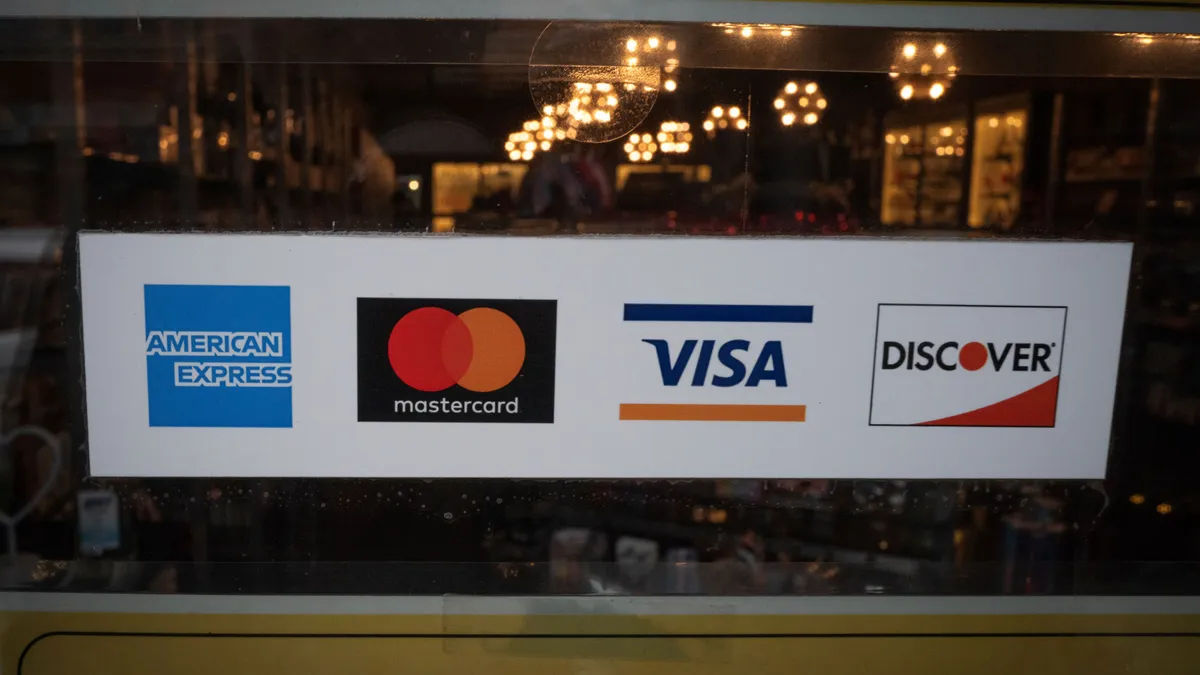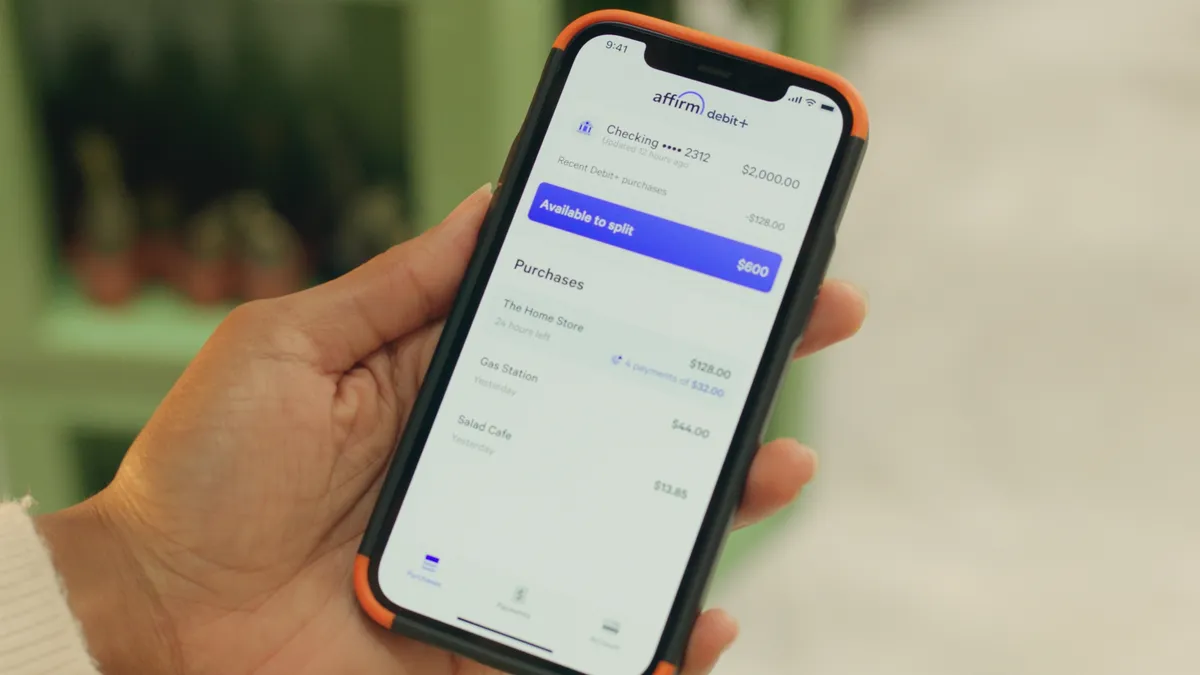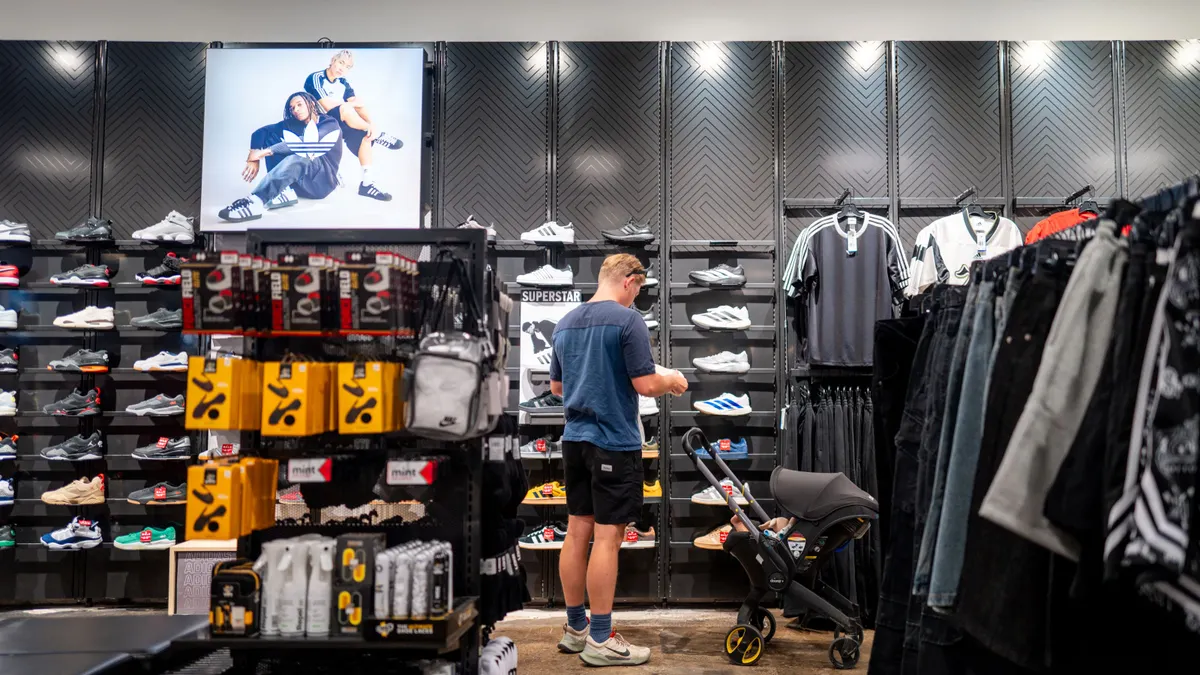U.S. card network companies are waiting on a full recovery of travel to lift results, and for the moment they're getting positive inklings despite the omicron variant messing with prior expectations.
Just last fall, they were beginning to note the resumption of travel spending, but then the latest variant of the COVID-19 pandemic put a damper on trips, especially international travel.
The major U.S. card companies, including Visa, Mastercard, American Express and Discover Financial, receive a significant share of revenue from travel spending, so consumers returning to the skies and spending in other countries will result in a meaningful boost to card revenue, with credit cards providing more fees than debit cards.
In reporting 2021 fourth-quarter earnings Thursday, San Francisco-based Visa, the biggest of the four U.S. card companies, made clear how pivotal that cross-border spending is.
"While omicron has had some recent impact, it has been modest and will ease as the wave crests," Chief Financial Officer Vasant Prabhu said Thursday during a call with analysts to discuss the company’s results. "The swing factor is cross-border travel."
While cross-border stalled late last year, Prahbu said he anticipates the reopening of borders now in most countries, except in Asia, will push the recovery forward again in February. By the end of the year, the assumption is that travel will be back at pre-pandemic 2019 levels, he said.
"The big swing factor at this point is how quickly Asia opens and how restrictive is it after opening," Prabhu said. While China remains less open for travel, some other parts of Asia, such as Thailand, were reopening surprisingly fast last year in the months before omicron troubles arose, he said. Now, others, including Singapore, India and Indonesia, are beginning to reopen and ease restrictions, Prabhu said.
The No. 2 card company, Purchase, New York-based Mastercard, was equally optimistic about travel resuming and raising revenue this year.
"Cross-border travel (in the fourth quarter) continued to show improvement relative to quarter 3 levels, aided by border openings in the U.S., U.K. and Canada," Mastercard CEO Michael Miebach said during that company’s earnings call on Thursday. "While omicron has had some recent impact on cross-border travel, we continue to believe that cross-border travel will return to 2019 levels by the end of this year."
He cited the better ways for fighting the pandemic as paying off now. "The reality is that the tools we have to deal with the pandemic are more advanced than ever," Miebach said during the call. "Sixty percent of the world's population has now been partially vaccinated, effective therapeutics are becoming available and governments are using more targeted measures to limit the spread."
Asia-Pacific has lagged, providing an opportunity for more of an increase in that region, Miebach said, but overall his forecast was for an end to the pandemic despite “near-term travel-related headwinds” due to omicron.
"Although we've always said the path forward will not be linear, there are signs we are moving towards the endemic phase of the disease," he said.
At American Express, CEO Steve Squeri said that travel and entertainment spending in the fourth quarter reached 82% of pre-pandemic levels, driven by travel spending. Travel bookings for the fourth quarter were 24% higher than those in the comparable period for 2019, he said, but in the first couple of weeks in January, bookings were up 44% relative to 2019, he said.
"Our boomers are traditionally the ones that travel and have money," Squeri said during an earnings call Tuesday, referring to the baby boomer generation in its late 50s and older. "Once we get from pandemic to endemic here, they're going to start traveling again."
While acknowledging questions about the return of business travel, given the larger pandemic remote workforce, Squeri said that change may actually promote more travel as more employees take trips to their home offices.
Overall, Amex expects travel revenue to lag some other income categories this year and to become a "tailwind" next year, said Chief Financial Officer Jeff Campbell.
"The T & E trends we've seen throughout 2021 reinforce our view that travel and entertainment spending will eventually fully recover, but at varying paces across customer types and geographies," Campbell said.
While executives at the smallest of the four U.S. card companies, Discover Financial, also weren’t ready to point to a full recovery, they have seen at least positive signs this month.
"Travel is holding up actually in January surprisingly well, given the state of that pandemic," said Discover Financial CEO Roger Hochschild said during that company’s earnings conference call with analysts last week.




















